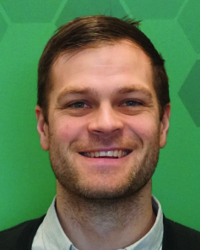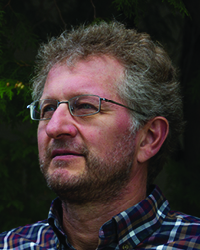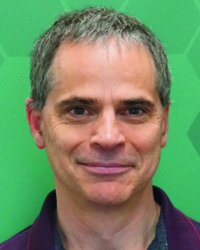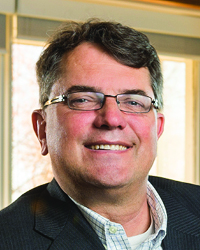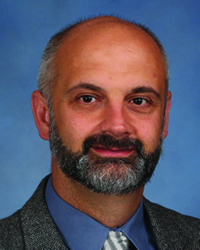Dr. Blade is Dean of the Faculty of Agricultural, Life and Environmental Sciences (ALES) at the University of Alberta. The Faculty is made up of 500+ faculty and staff, 1600 undergraduates and 550 graduate students. ALES is focused on teaching, research and community service in its departments and schools: Agriculture, Food and Nutritional Sciences, Renewable Resources, Human Ecology, Resource Economics and Environmental Sociology as well as the University of Alberta Botanic Garden and the Alberta School of Forest Science and Management. The Faculty has an annual budget of $85m, with approximately $45m of that composed of external research support. The Faculty has a large research infrastructure which includes 25,000 acres of farm and ranchland in key ecologies across Alberta. Dr. Blade is a full professor in the Faculty’s Department of Agriculture, Food and Nutritional Science.
Dr. Blade was born in Alberta, Canada where he was raised on a dairy and grain farm. He attended the University of Alberta for his first degree (B.Sc.) in genetics. He obtained his M.Sc. (Crop Science) from the University of Saskatchewan for a breeding/physiology study on wheat. Dr. Blade’s doctorate was awarded by McGill University (Montreal, Canada) for work done at the International Institute of Tropical Agriculture on a Canadian International Development Agency Ph.D. Scholarship. The thesis topic was a plant breeding/farming systems approach to improving an indigenous grain legume (Vigna unguiculata L.) for use within the complex cereal-legume cropping systems of the West African savanna.
Dr. Blade is a 2012 graduate of the Wharton Business School’s Executive Development Program (University of Pennsylvania). In 2012 Dr. Blade was named by Alberta Venture as one of “Alberta’s 50 Most Influential People”.
Dr. Stan Blade was the founding Chief Executive Officer (2008-2014) of the Alberta Innovates Bio Solutions Corporation (AI Bio). Dr. Blade previously served as the Deputy Director General (Research) for the International Institute of Tropical Agriculture (IITA). IITA is a world-class research organization that is part of the Consultative Group on International Agricultural Research (www.cgiar.org). Dr. Blade was a member of the Alliance Deputy Executive of the CGIAR. IITA is based in Ibadan, Nigeria, and has additional research stations in eastern and northern Nigeria, Benin, Cameroon, Kenya, Tanzania and Uganda. IITA has 150 internationally-recruited research and technology transfer experts based in fifteen countries within Africa.
Dr. Blade has published 90+ research articles, ten book chapters, 170+ conference abstracts and has edited four books. He has been the winner of several awards from the American Society of Agronomy and the Crop Science Society of America. Dr. Blade is a member of several professional societies and international committees, and has served on the editorial boards of several international journals. Dr. Blade has worked and traveled in 90+ countries.
He currently serves as Vice Chair on the Board of Trustees of the African Agricultural Technology Foundation, a Nairobi-based agency supported by the Bill and Melinda Gates Foundation. Dr. Blade also serves as a Trustee of the International Institute of Tropical Agriculture and as a board member for Edmonton Global (regional economic development agency), the Alberta Biodiversity Monitoring Institute and the Alberta Cancer Foundation.

